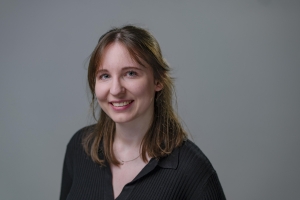
Sylvia Hayes
PhD Student
sh737@exeter.ac.uk
Amory
Amory Building, University of Exeter, Rennes Drive, Exeter, EX4 4RJ , UK
Overview
Currently, I am a Research Fellow in the Centre for Climate Communication and Data Science, focusing on the communication of climate change across digital and visual forms of communication.
I am a former PhD researcher interested in the visual communication of climate change. My PhD research aimed to investigate the production of climate change journalism, particularly in the world of digital news. I have worked closely with award-winning digital climate news organisation Carbon Brief and am grateful for their support in my reserach.
Following my First Class BA Geography degree from the University of Exeter, I was fortunate enough to receive South West Doctoral Training Partnership funding to continue research in this area through both an MRes and PhD.
My MRes research investigated the role of image banks (particularly Getty Images) in constructing a visual discourse of climate change in the media. In 2021, I published a paper on the visual changing visual discourse of climate change protests in 2019/20 building on this work.
You can hear me talking about this research on climate change protest in a recent BBC podcast.
I am delighted to be working with the excellent supervision team of Saffron O’Neill (University of Exeter), Catherine Butler (University of Exeter), and Lorraine Whitmarsh (University of Bath).
Broad research specialisms
Climate change communication, digital media, visual climate communication, social media
Qualifications
BA Geography – University of Exeter
MRes Sustainable Futures – University of Exeter
Links
Research
Research interests
Climate change communication, digital-born media, visual climate communication, social media
Research projects
I am currently working on several projects alongside my PhD work:
- A study on public responses to images of climate protest, inspired by my recent article on the media representations of climate protesters. This is a project I am running with Professor Lorraine Whitmarsh and the University of Bath, as well as Undergraduate Research Assistant Yu Shuang Gan
- Visual Reporting of Heatwaves: working with Associate Professor Saffron O'Neill to lead a group of European scholars to analyse visual coverage of the 2019 heatwave across Europe. More information on this project here.
- Analysed UK newspaper editorials between 2011-2021 for pro/anti climate action sentiment. This analysis was undertaken with and for Carbon Brief.



